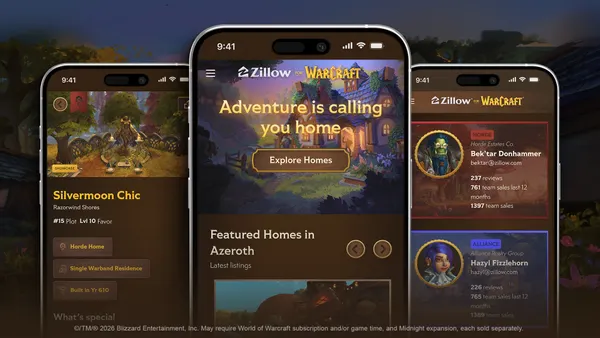Brief:
- Amazon plans to add its Alexa voice assistant to its Android and iOS smartphone apps, whose functions used to be restricted to controlling settings, timers and Alexa-enabled devices, according to VentureBeat.
- The new capability means that users can activate Alexa and 25,000 Alexa skills just by speaking into their phones as they would with Amazon's line of Echo speakers. They can then use the app to listen to music, control phone settings, search the web and manage other smart home devices.
- Reports from late last week suggested Alexa voice capabilities would be available for the Android app within a few days, and later added to iOS. Amazon in March integrated Alexa into the iOS version of its main app.
Insight:
By adding Alexa capabilities to an app, Amazon is positioning its voice-enabled assistant to compete more directly with similar services from tech giants such as Apple and Google. The development also gives users of iOS and Android devices another digital assistant to engage with in addition to Apple's own Siri and Google Assistant. Apple added the similar Siri assistant to iPhones more than six years ago, while Google Assistant was introduced in 2016. The Alexa app is somewhat unique in that it can be used to control other smart home devices or give users access to thousands of special skills.
The goal of this particular move seems to be all about ensuring Amazon stays ahead of voice competition by controlling key functions through mobile phones. Amazon and Google are vying for dominance in voice-enabled devices, as each company cut prices of their products during the key holiday buying season to urge consumers to get on board with their respective platforms. Amazon's Echo devices can handle a growing number of Alexa skills, but the e-commerce giant is mostly positioning the gadgets as a gateway to its shopping platform and streaming content services.
Amazon also is in talks with major consumer brands to advertise on Alexa-enabled devices. Recently, many brands have scrambled to integrate some sort of voice assistant into its products, including computers, cars, and even toilets. Later this year, Alexa will be available in Toyota cars, as announced at the Consumer Electronics Show earlier this month.
As the dominant market leader in voice assistants, Amazon likely recognizes that voice is set to be the key interface for the future of mobile. While the company's made Alexa a hit by incorporating the assistant into its own smart speakers, Amazon doesn't produce its own smartphone, so one way it can wedge itself into the smartphone space is through apps.
The U.S. user base for voice-enabled speakers more than doubled to 36 million last year as Amazon led the market with a 71% share, researcher eMarketer estimated in May. For Google to catch up, the company needs to focus on its artificial intelligence technology to make Google Assistant "smarter" than Alexa, Forrester analyst James McQuivey told USA Today. That would mean making Google Assistant more proactive in initiating conversations with users, such as hearing when they walk into a room and greeting them with time, temperature, news headlines and a song, he suggested.













